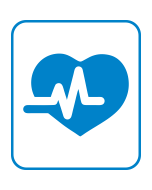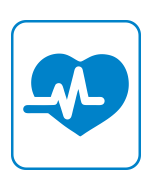Thailand Clinical Laboratories Market, Forecast to 2025
Thailand Clinical Laboratories Market, Forecast to 2025
Rising Demand for Diagnostics Services from the Ageing Population and Growing Prevalence of Chronic Diseases to Drive Market Growth
28-Mar-2019
Asia Pacific
$1,500.00
Special Price $1,125.00 save 25 %
Description
This study focuses on clinical lab services in Thailand. A detailed analysis is provided on clinical testing services at public hospital labs and private hospital labs. Specialised labs are integrated into the independent reference labs segment. Certain trends with regard to physician office labs (POLs) in retail clinics have been mentioned in the report. The study period is 2014–2025 with a base year of 2018.
Thailand, the second-largest economy in Southeast Asia, promotes foreign investment with a new S-curve structure towards an innovative, digital, and research-based economy, leading the country to a new dimension of laboratory, biotechnology, and life science investment in ASEAN. Thailand is considered a top destination for medical tourism in Southeast Asia. The Thai government announced a ten-year strategic plan (2016–2025) which aims to develop and consolidate economic sectors as a hub for wellness and medical services. The country has been aggressively seeking to boost its competitive edge over recent years. To this end, it has introduced a number of new tax and financial incentives, while also approving several mega-projects designed to stimulate research and development (R&D) activities across the country. Inevitably, this has spurred local demand for clinical laboratory upgrades.
Industry-specific information obtained for this study includes:
• Revenue breakdowns by customer segments such as hospital-based labs and independent labs
• Company revenues, market share estimates, and projected growth rates of various competitors
• Top-level understanding of market drivers, restraints, lab counts, and test volume by specialty
The government has set up national accreditation bodies such as the Thailand Laboratory Accreditation programme to encourage lab accreditation and to regain consumer confidence. Thailand’s reforms prioritize strengthening a district health system with a strong pro-rural and pro-poor focus. One of the initiatives is to encourage private players to invest in rural areas by offering tax exemptions. In Thailand, 73% of deaths are caused by NCDs, yet disease prevention is possible by running routine healthcare tests. Thus, the adoption of routine healthcare tests is also increasing. More non-core tests will be outsourced to reduce lab overheads and to meet surplus demand.
Thailand’s Universal Coverage Scheme (UCS) was expanded in 2008 to provide more extensive coverage. The percentage of people covered increased from 92.5% in 2002 to 99.8% in 2015. The UCS plan targets minority groups and the poor and near-poor population, providing the highest possible coverage. Besides basic hospital fees, it covers comprehensive outpatient and inpatient health services including prevention and health promotion.
Key Issues Addressed
- How has Thailand’s clinical labs market changed over the years?
- What impact will new regulations have on labs? What are the new procedures that need to be adopted to gain approvals? How would this affect manufacturers?
- Which type of testing is experiencing maximum growth and why?
- What are the new business models that can change care delivery?
- Which segments are opportunistic for manufacturer sales?
- What acquisition trends were witnessed in the last few years? How will this change?
Table of Contents
Key Findings
Key Trends
Key Questions this Study will Answer
Executive Summary—Market Engineering Measurements
Key Companies to Watch
3 Big Predictions
Scope and Segmentation
Market Segmentation
Market Segmentation (continued)
Market Overview
Market Overview (continued)
Market Overview (continued)
Market Overview (continued)
Market Overview (continued)
Market Overview (continued)
Market Overview (continued)
Market Overview (continued)
Impact of Trends on Clinical Laboratories Market
Defining Healthcare Trends in the Future
Market Drivers
Drivers Explained
Drivers Explained (continued)
Market Restraints
Restraints Explained
Restraints Explained (continued)
Impact Mapping of Drivers and Restraints
Thailand Clinical Laboratory—Overview
Thailand Clinical Laboratory—Set-up Options
Thailand Foreign Investment—Thailand 4.0
Market Engineering Measurements
Forecast Assumptions
Revenue Forecast
Revenue Forecast by Segment
Revenue Forecast Discussion
Competitive Structure
Clinical Laboratories Market Access in Thailand—Game-changing Strategies
Merger, Acquisition, and Partnership Assessment
Company Information—N Health
Company Information—BRIA Lab
Company Information—BPL
Industry Value Chain
Major Growth Opportunities
Growth Opportunity 1—Test Type
Growth Opportunity 2—Centralized Lab Systems
Growth Opportunity 3—Digital Health
Growth Opportunity 4—Super Specialty Clinic
Strategic Imperatives for Thailand’s Clinical Laboratories Market
3 Big Predictions
Legal Disclaimer
List of Exhibits
List of Exhibits (continued)
The Frost & Sullivan Story
Value Proposition—Future of Your Company & Career
Global Perspective
Industry Convergence
360º Research Perspective
Implementation Excellence
Our Blue Ocean Strategy
Popular Topics
| No Index | No |
|---|---|
| Podcast | No |
| Author | Sanjeev Kumar |
| Industries | Healthcare |
| WIP Number | 9AB9-00-A0-00-00 |
| Is Prebook | No |
| GPS Codes | 9600-B1,99C1-B1,99C6-B1,9837-B1,9611-B1,9627-B1 |
 USD
USD GBP
GBP CNY
CNY EUR
EUR INR
INR JPY
JPY MYR
MYR ZAR
ZAR KRW
KRW THB
THB


